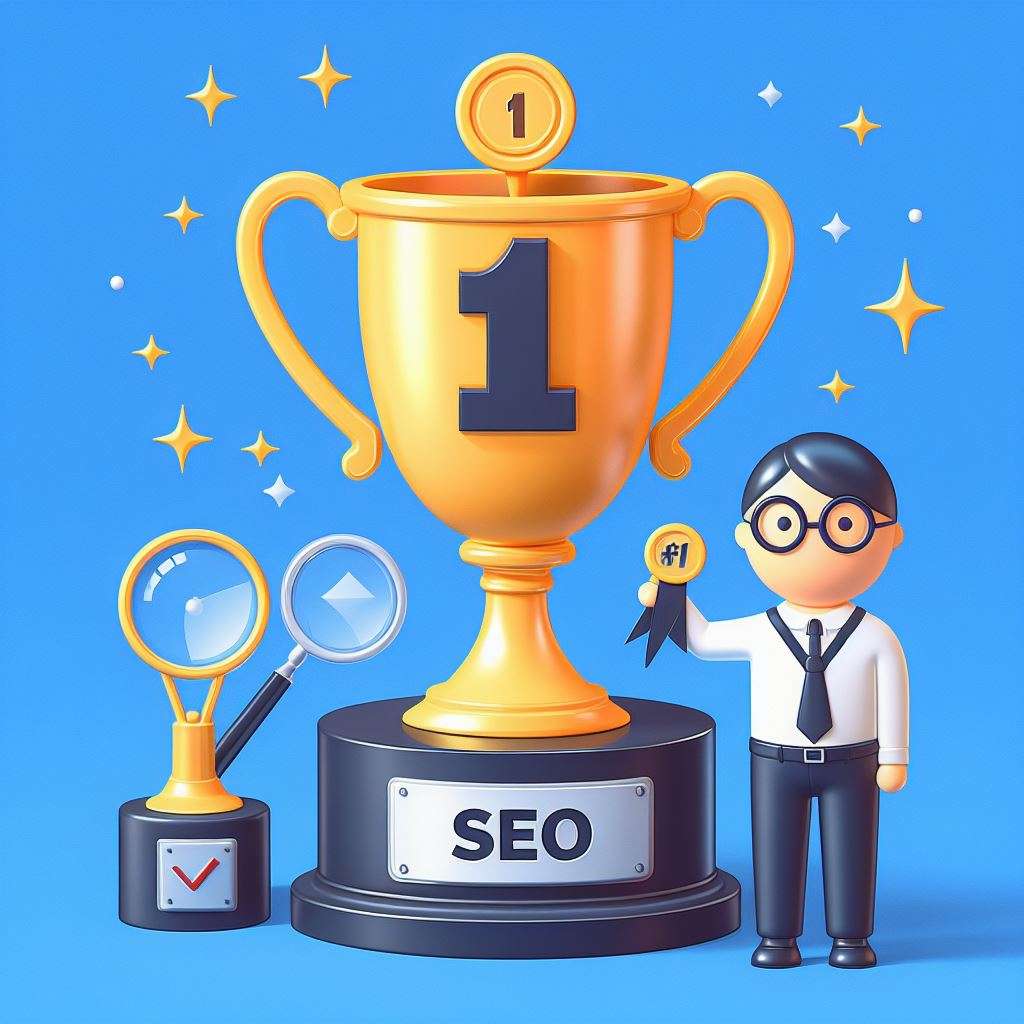Having a strong online presence is crucial for any business. Search Engine Optimization (SEO) is a powerful tool that can help you achieve this goal by increasing your website’s visibility in search engine results pages (SERPs). But navigating the complexities of SEO can be overwhelming, especially for businesses unfamiliar with this realm. This is where picking the best SEO company comes in.
However, choosing the right SEO service provider can be just as challenging. With numerous agencies offering various services, it’s essential to find one that aligns with your specific needs and delivers tangible results. This guide will equip you with the knowledge and key considerations to pick the best SEO company for your business.
What is an SEO company?
An SEO company employs practices aimed at improving a website’s visibility and ranking in search engine results pages. They have a deep understanding of the SEO dos and don’ts. They can help businesses attract more organic traffic to their websites through various strategies.
1. On-Page SEO
This involves fine-tuning the elements within your website to make it more appealing to search engines and users alike. It’s like meticulously arranging your shop window to attract customers. Here’s what it entails:
- Keyword Optimization: This involves optimizing the elements within your website (on-page) to improve search engine ranking and user experience. SEO companies ensure your website has proper title tags, meta descriptions, header tags, and image alt text incorporating your target keywords. They also know how to effectively use informational, commercial, and transactional keywords to drive traffic to websites.
- Content Quality: Creating valuable, informative content that resonates with your target audience and answers their search queries. Think of it as offering informative product descriptions that educate potential buyers.
- Website Structure: Organizing your website’s content in a clear, logical hierarchy using internal linking. This is similar to organizing your store aisles to make navigation easy for customers.
2. Technical SEO
Going beyond the surface, SEO companies address technical aspects like website speed, mobile-friendliness, and structured data markup, falling under the umbrella of technical SEO. These factors directly influence how search engines crawl and index your website.
The best SEO company goes behind the scenes and ensures your website is technically sound and search engine friendly. It’s like ensuring your store’s foundation is strong and the plumbing works well. Key aspects include:
- Website Speed: Optimizing website loading speed for a smooth user experience. Slow websites are like waiting in a long line at checkout – frustrating for customers and bad for business.
- Mobile-Friendliness: Ensuring your website displays and functions seamlessly on all devices, especially mobile phones, which have become the dominant browsing platform. It’s like making sure your store is accessible and welcoming to everyone. While SEO companies don’t directly handle web design or development, they work closely with these aspects to ensure a website is optimized for search engines. Their services encompass various areas that directly impact your website’s ranking and visibility.
- Structured Data: Providing search engines with additional information about your website content using structured data markup. It’s like adding clear product labels with detailed information to help customers understand what they’re buying.
- Crawlability and Indexability: Making sure search engines can easily access and index your website’s content, similar to ensuring your store has clear signage and is listed on local directories.
3. Off-Page SEO
This focuses on building your website’s reputation and authority outside your own domain. It’s like getting positive word-of-mouth recommendations from satisfied customers. Here’s how it works:
- Link Building: Earning backlinks from high-quality, relevant websites is a crucial off-page SEO tactic. Backlinks act like votes of confidence for your website, influencing its search engine ranking. Imagine other reputable stores recommending yours to their customers.
- Social Media Marketing: Promoting your website and content on social media platforms can increase brand awareness and drive traffic back to your website. Think of social media as another way to reach potential customers and showcase your products.
4. Keyword Research
This involves identifying the search terms people use to find businesses like yours online. It’s like understanding what your target audience is searching for. Keyword research helps you:
- Target the right audience: By understanding the keywords your potential customers use, you can tailor your content and website to be more relevant and appealing to them.
- Stay ahead of the curve: Keyword trends can shift over time, so regular keyword research helps you adapt your strategy and stay competitive.
5. Content Marketing
Content marketing involves creating high-quality, informative content like blog posts, articles, infographics, or videos that attract organic traffic. Blogging and other forms of content can help establish your brand as an industry expert and improve your website’s ranking. It’s like creating engaging content that educates and informs your target audience, turning them into potential customers.
6. Local SEO
If you have a brick-and-mortar location or serve a specific local area, optimizing your online presence for local search is crucial. This involves:
- Claiming and optimizing your Google Business Profile: This ensures your business appears in relevant local searches on Google Maps and Search.
- Citations: Building citations, which are mentions of your business name, address, and phone number (NAP) across various online directories and websites, can improve your local SEO.
- Reviews: Encouraging your customers to leave positive reviews online can build trust and credibility for your local business.
7. Competitor Analysis
This involves analyzing your competitors’ SEO strategies to identify their strengths and weaknesses and find areas for improvement in your own approach. It’s like studying your competition and learning from their successes and failures.
8. SEO Reporting and Analytics
A reputable SEO company should provide regular reports on your website’s traffic, keyword rankings, and the overall effectiveness of their SEO efforts. This data is essential for tracking progress, measuring success, and identifying areas for improvement. Imagine receiving regular sales reports to understand your business performance and make informed decisions.
Are you searching for the best SEO company to elevate your online presence?
Contact Growth Hackers
In-House vs. Agency: Navigating the SEO Team Debate
Choosing the right approach to SEO, whether building an in-house team or partnering with an agency, can be a significant decision for any business. Both options offer distinct advantages and disadvantages, and the ideal choice depends on various factors specific to your unique situation.
Building an In-House SEO Team
Pros:
- Deeper understanding of your business: In-house teams can develop a comprehensive understanding of your company’s goals, brand voice, and target audience, allowing for a more tailored SEO strategy.
- Greater control and flexibility: You have complete control over the SEO strategy and direction, allowing for quicker adjustments and adaptations to your needs.
- Improved communication and collaboration: Direct communication within the team fosters stronger collaboration and alignment with other departments like marketing and sales.
Cons:
- Significant investment: Building and maintaining a qualified in-house team requires ongoing investment in salaries, benefits, training, and necessary SEO tools.
- Limited expertise and experience: Establishing an in-house team necessitates finding and retaining individuals with diverse SEO skill sets, which can be challenging and time-consuming.
- Scalability limitations: Scaling an in-house team upwards or downwards based on changing needs can be difficult and may require additional resources.
Partnering with an SEO Agency
Pros:
- Access to diverse expertise and experience: Agencies house teams of specialists skilled in various SEO aspects, offering a broader range of expertise than you might find in-house.
- Cost-effective solution: Agencies often offer cost-effective solutions compared to building and maintaining a dedicated in-house team, especially for smaller businesses.
- Scalability and flexibility: Agencies can readily adapt their services and resources to meet your evolving needs without significant internal restructuring.
Cons:
- Less control and understanding: Agencies may require time to fully understand your business and its nuances, which can initially impact the effectiveness of their strategy.
- Communication challenges: Clear and consistent communication with your agency is crucial to ensure alignment with your goals, which can require extra effort on your part.
- Finding the right fit: Selecting the right agency requires thorough research and evaluation to ensure their approach aligns with your company culture and values.
Situations Favoring an SEO Agency
- Limited Budget and Resources: Building and maintaining an in-house team requires significant investment. Smaller businesses or those with limited resources can leverage an agency’s expertise within a cost-effective framework.
- Lack of In-House SEO Expertise: If you lack internal SEO knowledge and resources to recruit and train specialists, an agency can provide immediate access to a team of experienced professionals.
- Need for Scalability and Flexibility: Agencies offer the flexibility to scale their services up or down as your SEO needs evolve, avoiding the need for internal restructuring.
- Short-Term Project Needs: If you have a specific SEO project with a defined timeframe, outsourcing to an agency can be a more efficient solution than building a permanent team.
Additional Benefits of an SEO Agency
- Diverse Expertise: Agencies often house specialists in various SEO disciplines, offering a broader range of knowledge and experience than you might find in a small in-house team.
- Access to Latest Tools and Technologies: Agencies typically invest in the latest SEO tools and technologies, ensuring your campaign benefits from ongoing advancements in the field.
The data gathered from SEO tools like Google Analytics, Google Search Console, Ahrefs, and SEMrush plays a vital role in an SEO company’s approach:
- Website Traffic Analysis: Understanding your website’s traffic sources, user behavior, and popular content helps SEO companies identify areas for improvement and tailor strategies accordingly.
- Keyword Ranking Tracking: Monitoring your website’s ranking for targeted keywords allows SEO companies to assess the effectiveness of their strategy and make adjustments as needed.
- Competitor Analysis: Analyzing your competitors’ SEO strategies and online presence helps identify potential gaps and opportunities to outrank them in search results.
- Data-Driven Approach: Reputable agencies utilize data-driven strategies and provide regular performance reports, offering transparency and allowing you to track progress toward your SEO goals.
Ultimately, the optimal choice depends on your specific circumstances and priorities. Carefully consider your budget, resources, existing SEO knowledge, and long-term goals to make an informed decision that aligns best with your business strategy and propels you toward achieving your online objectives.
Choosing the Best SEO Company: A Step-by-Step Guide
Finding the right SEO company can be an overwhelming task, but by following these steps and considering key criteria, you can increase your chances of selecting a partner who will propel your online success.
1. Define Your Needs and Goals
- Start by outlining your specific SEO goals. Do you want to increase website traffic, improve brand awareness, generate leads, or boost sales?
- Identify your target audience. Understanding who you’re trying to reach will help you choose an SEO company with expertise in your industry and target market.
- Set a realistic budget. SEO is an ongoing investment, so determine how much you’re comfortable spending and be prepared to discuss pricing options with potential companies.
2. Research and Shortlist Potential Companies
- Seek recommendations from trusted sources: Ask colleagues, business associates, or industry professionals for referrals.
- Search online directories: Utilize platforms like Clutch or Upwork and filter results based on your location, industry, and budget.
- Read online reviews: Check review websites to see what previous clients have said about their experiences.
3. Evaluate Each Company’s Expertise
- Visit the company’s website: Assess their level of professionalism, industry knowledge, and service offerings. Ensure they showcase successful case studies relevant to your industry and goals.
- Review their blog or social media content: Look for informative articles, industry insights, and engagement with their audience. This can indicate their expertise and commitment to continuous learning.
- Check their qualifications: Look for certifications like Google Partner or Moz Local SEO badge, which demonstrate their commitment to industry best practices.
4. Schedule Consultations:
- Shortlist 3-5 companies based on your research.
- Schedule consultations with each company. This is your opportunity to ask questions and assess their communication style, approach to SEO, and understanding of your specific needs.
- Prepare questions in advance: Ask about their experience in your industry, their specific SEO strategies, their reporting process, and their pricing structure.
5. Consider Key Criteria:
- Experience and Expertise: Choose an agency with a proven track record of success in your industry. Look for case studies demonstrating their ability to achieve similar goals for businesses like yours.
- Services Offered: Ensure their services align with your specific needs and budget. Don’t be swayed by companies offering a one-size-fits-all approach.
- Transparency and Communication: Choose a company that openly communicates its strategy, keeps you informed of progress, and readily answers your questions.
- Reporting and Analytics: They should provide regular reports showcasing the impact of their efforts, including website traffic, keyword rankings, and conversion rates.
- Client Testimonials and Reviews: Read online reviews and ask for references to understand their approach, communication style, and client satisfaction.
- Pricing and Value: Compare pricing models and ensure the cost aligns with the value they deliver. Be wary of companies offering unrealistically low prices or guaranteed rankings.
After meeting with different companies, choose the one you feel most comfortable with and confident in their ability to understand your needs and achieve your desired outcomes.
Elevate your online presence with one of the top SEO companies!
Red Flags to Watch Out For
While many SEO companies offer legitimate services, some might resort to unethical tactics that can harm your website in the long run. Here are some red flags to watch out for:
- Guaranteed Rankings: Be wary of companies promising guaranteed top rankings on search engines. This is often an unrealistic and potentially harmful approach, as search engine algorithms are constantly evolving.
- Black Hat SEO Techniques: These involve manipulative tactics that violate search engine guidelines, like keyword stuffing or buying low-quality backlinks. These black-hat tactics can lead to penalties from search engines, pushing your website down in search results.
- Focus on Quantity over Quality: Companies emphasizing large volumes of backlinks over high-quality, relevant links might be using questionable practices. Building genuine connections with other websites in your industry is far more valuable and sustainable.
- Lack of Transparency: A reputable SEO company should be transparent about its process, explain its strategies clearly, and answer your questions openly. If they seem evasive or hesitant to provide details, it’s best to move on.
- Unrealistic or Vague Proposals: A qualified SEO company will conduct a thorough enterprise SEO audit and competitor analysis before proposing a tailored strategy. Proposals lacking specific details or timelines should raise concerns.
Final Thoughts on How to Pick the Best SEO Company
Choosing the right SEO company is like selecting a business partner. Opt for an agency that aligns with your company culture, values, and communication style. Regular communication and open collaboration are crucial for a successful partnership.
Remember, SEO is an ongoing investment. While finding a company that fits your budget is essential, prioritize quality over the cheapest option. A reputable SEO company can deliver valuable results that contribute to the long-term growth of your online presence.
By understanding the fundamentals of SEO, identifying red flags, and prioritizing effective communication, you can make an informed decision and select the ideal SEO company to guide you on your journey toward online success.
Struggling to see stagnant leads and sales? Growth Hackers is one of the top search engine optimization agencies and is your one-stop solution for achieving sustainable online growth. We’re an award-winning agency with over 10 years of experience crafting winning SEO strategies and building memorable brands.
We’re not just focused on short-term results. We believe in building sustainable, long-term growth for your business. Our SEO strategies are designed to not only improve your search engine ranking but also attract qualified leads and convert them into loyal customers.
Our data-driven approach goes beyond basic SEO, offering a comprehensive suite of services like content marketing, competitor analysis, and conversion rate optimization. We prioritize clear communication, transparent reporting, and cost-effective solutions – all tailored to your specific needs and goals.
Partner with Growth Hackers and unlock the true potential of your online presence.
Contact GrowthHackers today and let’s discuss your path to success.










1 Comment
Picking the best SEO company can be overwhelming. I believe you need to have a good feeling when speaking with the agency and you need to let your gut feeling speak.